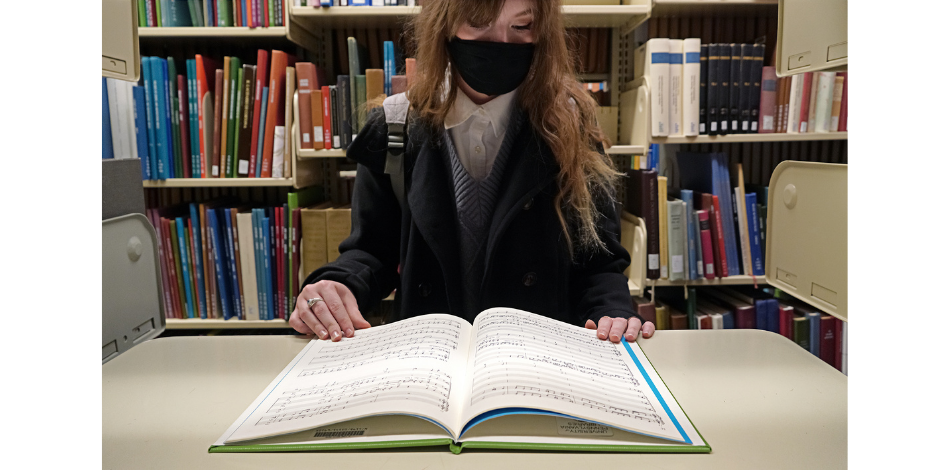Penn Libraries Unveils First Read and Publish Agreement with Cambridge University Press

As of January 1, 2022, University of Pennsylvania students, faculty, and staff whose research articles are accepted for publication in academic journals published by Cambridge University Press have the option to make their article open access at no additional cost to them.
This marks the first time that Penn has signed what is commonly called a “Read and Publish” agreement. Negotiated by the NorthEast Research Libraries Consortium, of which Penn is a Program Council member, the “Publish” provision of the agreement allows anyone affiliated with the University of Pennsylvania to publish research articles open access in Cambridge University Press hybrid or gold journals without paying article processing charges (commonly called APCs) themselves. Previously, Penn-affiliated authors would often pay APCs using funds from grants and departmental budgets, but under the agreement, this will no longer be necessary when publishing with Cambridge University Press journals. In addition, the “Read” provision expands the number of online publications that Penn students, faculty, and staff can read. Now they can access the entire suite of academic journals published by Cambridge University Press—that’s 168 more Cambridge titles than were available to them previously.
Cambridge University Press is the oldest publishing press in the world and one of the most prestigious academic presses of the 21st century. Cambridge publishes over 400 academic journals, including high-profile publications like American Political Science Review, Journal of Global History, and British Journal of Nutrition. By signing this agreement, Penn joins more than a thousand other institutions, including 140 in the United States, who have a Read and Publish agreement with this important academic press.
Brigitte Weinsteiger, Gershwind & Bennett Family Associate Vice Provost for Collections and Scholarly Communications at the Penn Libraries, led the team that negotiated the agreement for the NorthEast Research Libraries (NERL) Consortium, and is pleased to have struck a deal that benefits the institutions comprising NERL as well as the Penn community. “My hope is that other publishers, particularly nonprofits, will also collaborate with us to think creatively about how to expand their open access publishing while centering our shared values of sustainability and equity in scholarly publishing.”
Read and Publish agreements are just one of the ways that advocates for open access publishing close the gap between the ideal--that scholarly work should be free and available to all--and the realities of academic publishing, which does require funding, even when publishing books and articles open access. A common solution to this perpetual funding issue is for publishers to require authors to pay fees to publish open access with them, thus flipping the burden of the cost from readers to authors. With Read and Publish agreements, however, the cost for open access publishing is largely shifted from individual authors to the university or library with which they are affiliated.
However, as they grow in popularity among major academic research institutions and publishers, some open access advocates say that transformative agreements, like Read and Publish, have done little to disrupt an inequitable publishing industry. Most notably, transformative agreements don’t reduce the costs associated with publishing, nor do they help scholars who are not affiliated with institutions that can afford transformative agreements. Even institutions that are relatively well-financed can find themselves limited. For example, agreements might come with caps on the number of open access articles that can be published by affiliated scholars.
With these concerns in mind, Weinsteiger sought to ensure that Penn’s first transformative agreement avoided some of the model’s common pitfalls. “This agreement is financially sustainable for the publisher and it is financially sustainable for us. This is not insignificant; because Penn is a research-intensive institution, many transformative agreements modeled on paying to publish are cost-prohibitive.” The agreement also does not limit the number of open access articles that Penn-affiliated scholars can publish each year: “It allows for uncapped publishing for all Penn-affiliated corresponding authors, which means a huge proportion of our Penn researchers’ publications will be opened up to be freely read and cited.”
Weinsteiger and NERL were also interested in Cambridge University Press’ larger efforts to create a more equitable publishing environment. Cambridge has stated that its long-term goal is to ensure that all scholars can have article processing charges covered by their institutions, grants, or waivers. As part of this goal, Cambridge University Press participates in Research 4 Life, an initiative that offers waivers to scholars based in low- or middle-income countries where institutions are less likely to be able to afford Read and Publish agreements and grant funding is harder to come by.
While Weinsteiger notes that Cambridge and other publishers need to do significantly more to ensure a sustainable, equitable future for open access publishing, she thinks that these efforts are good first steps. “APC-based models for open access funding [like the one Cambridge utilizes] inherently have one shortcoming,” she observes. “They risk inadvertently excluding authors without the individual or institutional means to cover their publishing fees.” That said, Weinsteiger is encouraged by the success that Cambridge has had transitioning to open access publishing, and particularly by their goal to become a majority open access publisher by 2025. “It means that more authors should be able to participate, even without their own individual funds. While not ideal, we recognize that this transition can take some time, and are willing to partner with Cambridge on this new model in the spirit of collaboration and experimentation.”
This Read and Publish agreement represents just one of the growing number of ways that the Penn Libraries supports open access publishing. Learn more about some of our other resources and initiatives.
Date
January 11, 2022
